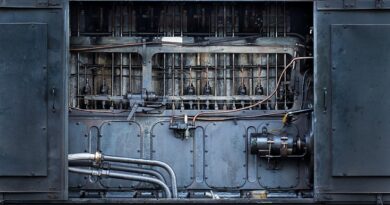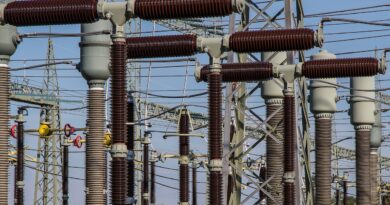Shocking Revelations: Uncovering Hidden Dangers through Electrical Safety Inspections in Noida
1. Introduction
Electrical safety is a paramount concern for both residential and commercial properties in Noida. Overlooking the potential hazards associated with electrical systems can lead to devastating consequences such as electrical fires, property damage, injuries, and even loss of life. To mitigate these risks, it is crucial to conduct regular electrical safety inspections. These inspections can unveil hidden dangers that are often overlooked and provide essential recommendations to ensure a safe and secure electrical environment.
2. The Importance of Electrical Safety Inspections
Electrical safety inspections play a pivotal role in identifying and addressing potential electrical hazards. They are designed to assess the overall condition of electrical systems, identify any faulty wiring, outdated components, or inadequate installations, and offer guidance on rectifying these issues. By proactively conducting electrical safety inspections, property owners can significantly reduce the risk of accidents, protect their assets, and promote a secure living or working environment.
3. Common Electrical Hazards in Noida
Noida, like any other city, is not immune to electrical hazards. Here are some of the most common dangers found in electrical systems:
3.1 Outdated Wiring Systems
Properties with aging electrical wiring are prone to various risks, including short circuits, electrical fires, and power outages. Over time, wires can deteriorate, become brittle, and lose their insulation, increasing the likelihood of electrical accidents.
3.2 Overloaded Circuits
Electrical circuits that are overloaded with appliances and devices beyond their capacity can overheat, leading to potential fire hazards. This is a common occurrence in households or offices with insufficient power outlets, resulting in the excessive use of extension cords and power strips.
3.3 Faulty Electrical Appliances
Defective electrical appliances can pose significant risks, including electric shocks, fires, and even explosions. Malfunctioning appliances may exhibit symptoms such as flickering lights, overheating, or unusual noises, signaling the need for immediate inspection and repair.
3.4 Inadequate Grounding
Proper grounding is essential to ensure the safe dissipation of excess electrical currents. Without adequate grounding, electrical surges can occur, damaging appliances and posing a severe risk to individuals in close proximity.
3.5 Poor Installation Practices
Improper installation of electrical components, such as switches, outlets, or lighting fixtures, can result in loose connections, exposed wires, and other hazards. These installation errors may not be immediately apparent, making electrical safety inspections crucial to uncover hidden dangers.
4. The Role of Electrical Safety Inspections
Electrical safety inspections serve multiple purposes in safeguarding properties and individuals. Let’s delve into their essential roles:
4.1 Identifying Electrical Risks
Thorough inspections help identify potential risks and hazards, allowing property owners to take prompt action. Trained inspectors assess the condition of electrical systems, including wiring, grounding, electrical panels, and appliances, to detect any anomalies or deviations from safety standards.
4.2 Preventing Electrical Accidents
By uncovering hidden dangers and addressing them promptly, electrical safety inspections prevent accidents such as electrical shocks, fires, or equipment malfunctions. Proactive measures can save lives, protect property, and minimize the financial and emotional toll associated with accidents.
4.3 Ensuring Compliance with Safety Standards
Electrical safety inspections ensure that properties comply with the relevant electrical codes and standards. This not only promotes safety but also helps avoid potential legal and insurance issues that may arise from non-compliance.
5. The Process of Electrical Safety Inspections
Electrical safety inspections follow a systematic process to comprehensively evaluate the condition of electrical systems. The steps involved typically include:
5.1 Initial Assessment
Inspectors conduct an initial assessment to gather relevant information about the property, including its age, electrical load, and previous inspection records. This helps in understanding the unique characteristics and potential risks associated with the electrical system.
5.2 Thorough Examination of Electrical Components
Inspectors examine all electrical components, including wiring, panels, outlets, switches, grounding systems, and appliances. They look for signs of wear and tear, inadequate installations, or any other anomalies that may compromise safety.
5.3 Identification of Potential Hazards
During the inspection, potential hazards are identified, ranging from outdated wiring to faulty appliances. Each hazard is carefully documented, and its severity is assessed to prioritize corrective measures.
5.4 Recommendations for Improvement
Based on the findings, inspectors provide detailed recommendations for addressing the identified hazards. These recommendations may include repairs, replacements, or upgrades to ensure compliance with safety standards and mitigate risks effectively.
5.5 Reinspection and Certification
After the necessary improvements have been made, a reinspection is conducted to verify the implementation of the recommended measures. Once the property meets the required safety standards, a certification is issued, providing assurance of its electrical safety.
6. Benefits of Regular Electrical Safety Inspections
Regular electrical safety inspections offer numerous advantages, including:
6.1 Minimizing the Risk of Electrical Fires
Identifying and rectifying potential fire hazards reduces the likelihood of electrical fires. By detecting faulty wiring, overloaded circuits, or malfunctioning appliances, inspections play a crucial role in preventing devastating fires and protecting lives.
electric shock. By addressing issues such as improper grounding, exposed wires, or faulty installations, electrical safety inspections create a secure environment that minimizes the risk of electric shocks.
6.3 Enhancing Energy Efficiency
Electrical systems that are not operating optimally can lead to energy wastage and higher utility bills. During safety inspections, energy inefficiencies such as power leaks, inefficient appliances, or outdated lighting systems are identified. By rectifying these issues, property owners can improve energy efficiency, reduce their carbon footprint, and enjoy cost savings.
6.4 Avoiding Costly Repairs and Downtime
Detecting and resolving electrical issues at an early stage can save property owners from costly repairs and unexpected downtime. Electrical safety inspections help identify potential problems that, if left unaddressed, could escalate into major issues. By taking proactive measures based on the inspection findings, property owners can avoid disruptive breakdowns and costly emergency repairs.
7. Choosing a Qualified Electrical Safety Inspection Service
When selecting an electrical safety inspection service in Noida, it is important to consider the following factors:
7.1 Experience and Expertise
Look for inspection services with a proven track record and extensive experience in conducting electrical safety inspections. A knowledgeable and experienced team will have the expertise to identify potential hazards accurately and provide valuable recommendations.
7.2 Licensing and Certifications
Ensure that the inspection service holds the necessary licenses and certifications required by local authorities. This guarantees that they have met the required standards and possess the technical expertise to conduct thorough inspections.
7.3 Customer Reviews and Testimonials
Check customer reviews and testimonials to gain insights into the quality of service provided by the inspection company. Positive feedback and satisfied customers are indicators of reliable and trustworthy service.
7.4 Comprehensive Inspection Services
Choose a service provider that offers comprehensive inspection services covering all aspects of electrical systems. This includes thorough examinations of wiring, grounding, panels, outlets, appliances, and other critical components.
7.5 Competitive Pricing
While cost should not be the sole deciding factor, it is important to find an inspection service that offers competitive pricing without compromising on the quality of service. Obtain quotes from multiple providers and compare their offerings before making a decision.
8. Conclusion
Electrical safety inspections play a vital role in uncovering hidden dangers within electrical systems in Noida. By identifying and addressing potential hazards, these inspections help prevent accidents, safeguard lives and property, and ensure compliance with safety standards. Regular inspections not only minimize the risk of electrical fires and shocks but also enhance energy efficiency and reduce costly repairs. By choosing a qualified inspection service, property owners can gain peace of mind knowing that their electrical systems are safe and secure.
FAQs
1. Why is electrical safety important?
Electrical safety is important to protect individuals and property from the hazards of electrical accidents such as fires, electric shocks, or equipment malfunctions. Regular inspections help identify potential risks and ensure compliance with safety standards, creating a secure environment.
2. How often should electrical safety inspections be conducted?
The frequency of electrical safety inspections depends on various factors such as the age of the property, its electrical load, and previous inspection records. It is generally recommended to conduct inspections at least once every 5 years for residential properties and more frequently for commercial buildings.
3. Can I perform electrical inspections myself?
Electrical inspections require specialized knowledge and expertise. It is recommended to hire a qualified and licensed electrical safety inspection service to ensure accurate assessments and proper identification of potential hazards.
4. What are the signs of electrical hazards in a property?
Signs of electrical hazards may include flickering lights, frequently tripped circuit breakers, discolored outlets or switches, burning smells, or buzzing sounds. Any unusual behavior or abnormalities in the electrical system should be addressed promptly through an inspection.
5. How much does an electrical safety inspection cost?
The cost of electrical safety inspections can vary depending on factors such as the size of the property, the complexity of the electrical system, and the service provider. It is advisable to request quotes from different inspection services and compare their offerings before making a decision.




